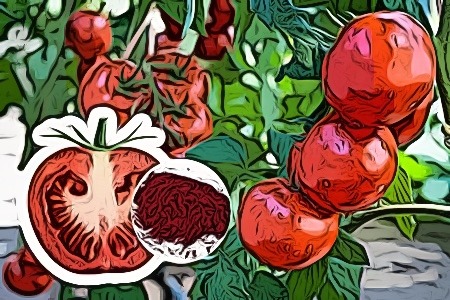Nutrient #19: Lycopene

7 Benefits of Lycopene
Lycopene is an antioxidant. It is a naturally occurring chemical found in red fruits and vegetables. Most dietary lycopene comes from tomatoes. But it is also available in watermelons, grapefruits, red oranges, and more.
This is because of the following reported benefits:
- Helps lower the risk of certain cancers, including bladder cancer.
- Lowers the risk of developing Diabetes.
- It lowers the risk of developing Parkinson’s Disease.
- It has shown to improve the lung function of people with asthma, especially following exercise.
- Lycopene has been shown to help prevent the hardening of arteries.
- It may also help lower the risk of certain cancers, including breast cancer.
- It has also been shown to help manage High Blood Pressure.
Ways to consume use Lycopene:
- It can be consumed directly from food, especially from fresh tomatoes and other red fruits.
- It can also be consumed in tomato sauce and other tomato based products.
- Supplements are also available, in the form of capsules, tablets, or powders.
Lycopene is one of 20 powerful nutrients in this series.
ALL 20 of these nutrients are contained inside the ProVen Nutritional Complex that we recommend.
To get ProVen for yourself (or to check out more details), follow the link below.
Click the ‘Next Nutrient’ button below to check out the next beneficial nutrient:
Research:
Thies, Frank, et al. "Cardiovascular benefits of lycopene: fantasy or reality?." Proceedings of the nutrition society 76.2 (2017): 122-129.
Laquatra, Idamarie, et al. "Health benefits of lycopene in tomatoes—conference summary." Nutrition today 40.1 (2005): 29-36.
Heber, David. "Colorful cancer prevention: α-carotene, lycopene, and lung cancer." (2000): 901-902.
Wang, Xiang-Dong. "Lycopene metabolism and its biological significance." The American journal of clinical nutrition 96.5 (2012): 1214S-1222S.
Das, Samarjit, et al. "Lycopene, tomatoes, and coronary heart disease." Free radical research 39.4 (2005): 449-455.
Copyright 2020 by NutritionFilledLife.com. All rights reserved.

This site is not a part of the Facebook website or Facebook Inc. Additionally, this site is NOT endorsed by Facebook in any way. FACEBOOK is a trademark of FACEBOOK, Inc. Disclaimer: All information provided is for educational use only. Proper due diligence is always recommended before starting any type of mindset education. Thank you and enjoy!
© 2020 Nutrition Filled Life
